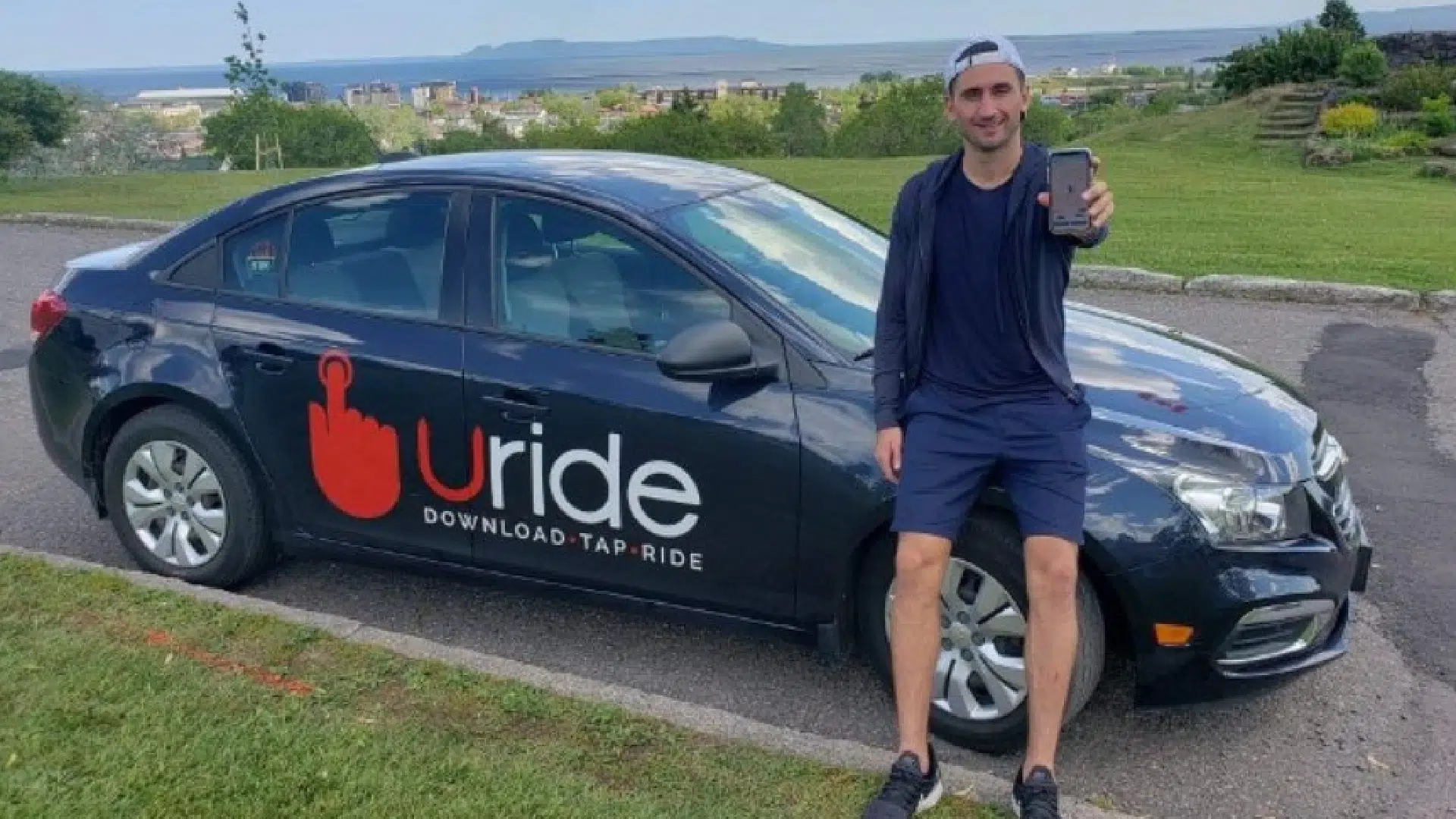Residents in Saint John and Moncton will soon have another transportation option.
Uride, an Ontario-based ridesharing company, has started recruiting drivers in both cities.
It comes on the heels of the company’s official launch in Fredericton over the weekend.
“We want to make sure that everyone, everywhere, has access to reliable transportation when they need it,” founder and CEO Cory Ruberto said in an interview.
Ruberto grew up in Thunder Bay, Ont., and went overseas to play professional soccer.
However, he was forced to return home shortly after when an injury took him off the field.
“Every time I’d go out, at the end of the night, I’d see crowds of people with no ride home,” he said. “This is a problem that shouldn’t exist.”
Ruberto said he has lost friends to impaired drivers, and one of his friends killed someone while driving drunk.
Wanting to give people another option to get home safely, he decided to launch Uride in his hometown.
But it did not take long before he was hearing from other people who wanted to see a similar service in their community.
Now, Uride is operating in 18 communities in New Brunswick, Ontario, Alberta and British Columbia.
“I feel like a lot of the smaller communities, we’re a little bit overlooked and we have major, major transportation problems,” said Ruberto.
Ruberto hopes to be up and running in Moncton and Saint John before the holiday season.
In order for that to happen, he said they will need to bring “dozens” of drivers on board.
“It all depends on the number of people who want to do it full-time and part-time and when people are available,” said Ruberto.
Uride will walk applicants through the onboarding process and cover any costs associated with it, he said.
Every driver will need a background check and their vehicle must be a 2014 model or newer with a valid safety test.
Drivers will also need a smartphone, proof of insurance and a Class 4 driver’s licence.
“Right now, we have a lot of applicants coming through, a lot of people who are interested in driving,” said Ruberto.
The conversation around ridesharing often turns to the impact on taxi companies operating in the community.
Ruberto said they have not seen any negative impacts in the communities they are currently in.
“The majority of cities that we operate in, there’s a lot of demand and not enough cars on the road to get people home safe, especially during peak times,” he said.
“A lot of the cities that we go into, we actually grow the overall transportation market.”




